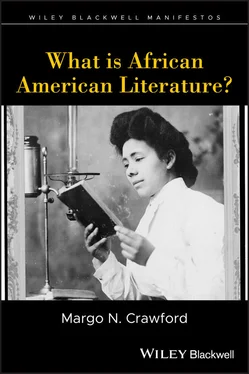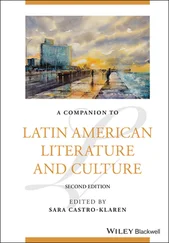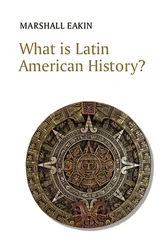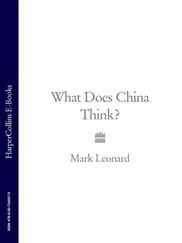1 Cover
2 Title Page
3 Copyright Page
4 Acknowledgments
5 Introduction: The Affective Atmosphere of African American Literature The Idea of the Black Book How Do You Bind Nerve Endings? Notes
6 1 The Textual Production of Black Affect Toni Morrison’s Blush Notes
7 2 Mood Books Hughes’ Signifying on Signifying Bodily Feeling in In Our Terribleness and Ask Your Mama Rethinking Literary Tradition Through Mood Notes
8 3 The Vibrations of African American Literature Feeling of Vibration (Not Imitation) The Vibrations of Cane To Choose and Lose Signature: Entering into the Not Yet Here Endnotes
9 4 Shiver : The Diasporic Shock of Elsewhere Beyond the Impulse to Anthologize: the Shiver of What is Left Out Notes
10 5 Twitch or Wink : The Literary Afterlife of the Afterlife of Slavery The Twitch and Winks in Post‐Neo‐Slave Narratives Winking at the Psychic Hold of Slavery in Black Arts Movement‐Era Drama Baraka’s Reinvention of Slavery in Slave Ship and The Slave Ntozake Shange’s Performance of Body/Air Tensions Atmos‐Feeling in Funnyhouse of a Negro Notes
11 CODA Notes
12 Index
13 End User License Agreement
1 Chapter 0Figure 1. Bernard Malamud, The Tenants (1971)
2 Chapter 1 Figure 2. Figure 3.Figure 4. The New Yorker , Kara Walker, 2019.
3 Chapter 3Figure 5. Author’s Photograph. Boston, Massachusetts.Figure 6. Broadside Press, 1975.Figure 7. Martin Puryear, Cane (2000)
4 Chapter 5Figure 8. Author’s Photograph, 2014.
1 Introduction: The Affective Atmosphere of African American Literature
2 Cover Page
3 What is African American Literature?
4 Title Page
5 Copyright
6 Acknowledgments
7 Table of Contents
8 Begin Reading
9 CODA
10 Index
11 WILEY END USER LICENSE AGREEMENT
1 ii
2 iii
3 iv
4 vii
5 viii
6 1
7 2
8 3
9 4
10 5
11 6
12 7
13 8
14 9
15 10
16 11
17 12
18 13
19 14
20 15
21 16
22 17
23 18
24 19
25 20
26 21
27 22
28 23
29 24
30 25
31 26
32 27
33 28
34 29
35 30
36 31
37 32
38 33
39 34
40 35
41 36
42 37
43 38
44 39
45 40
46 41
47 42
48 43
49 44
50 45
51 46
52 47
53 48
54 49
55 50
56 51
57 52
58 53
59 55
60 56
61 57
62 58
63 59
64 60
65 61
66 62
67 63
68 64
69 65
70 66
71 67
72 68
73 69
74 70
75 71
76 72
77 73
78 74
79 75
80 76
81 77
82 78
83 79
84 80
85 81
86 82
87 83
88 84
89 85
90 86
91 87
92 88
93 89
94 90
95 91
96 92
97 93
98 94
99 95
100 96
101 97
102 98
103 99
104 101
105 100
106 103
107 104
108 105
109 106
110 107
111 108
112 109
113 110
114 111
115 112
116 113
117 114
118 115
119 116
120 117
121 118
122 119
123 120
124 121
125 122
126 123
127 124
128 125
129 126
130 127
131 128
132 129
133 130
134 131
135 132
136 133
137 134
138 135
139 136
140 137
141 138
142 139
143 140
144 141
145 142
146 143
147 144
148 145
149 146
150 147
151 148
152 149
153 150
154 151
155 152
156 153
157 154
158 155
159 156
160 157
161 158
162 159
163 160
164 161
165 162
166 163
167 164
168 165
169 166
170 167
171 168
172 169
173 170
174 171
175 172
176 173
177 174
178 175
179 176
180 177
181 178
182 179
183 180
184 181
185 182
186 183
Wiley Blackwell Manifestos
In this series major critics make timely interventions to address important concepts and subjects, including topics as diverse as, for example: Culture, Race, Religion, History, Society, Geography, Literature, Literary Theory, Shakespeare, Cinema, and Modernism. Written accessibly and with verve and spirit, these books follow no uniform prescription but set out to engage and challenge the broadest range of readers, from undergraduates to postgraduates, university teachers, and general readers – all those, in short, interested in ongoing debates and controversies in the humanities and social sciences.
Already Published
| The Idea of Culture |
Terry Eagleton |
| The Future of Christianity |
Alister E. McGrath |
| Reading After Theory |
Valentine Cunningham |
| 21st‐Century Modernism |
Marjorie Perloff |
| The Future of Theory |
Jean‐Michel Rabaté |
| True Religion |
Graham Ward |
| Inventing Popular Culture |
John Storey |
| Myths for the Masses |
Hanno Hardt |
| The Future of War |
Christopher Coker |
| The Rhetoric of RHETORIC |
Wayne C. Booth |
| When Faiths Collide |
Martin E. Marty |
| The Future of Environmental Criticism |
Lawrence Buell |
| The Idea of Latin America |
Walter D. Mignolo |
| The Future of Society |
William Outhwaite |
| Provoking Democracy |
Caroline Levine |
| Rescuing the Bible |
Roland Boer |
| Our Victorian Education |
Dinah Birch |
| The Idea of English Ethnicity |
Robert Young |
| Living with Theory |
Vincent B. Leitch |
| Uses of Literature |
Rita Felski |
| Religion and the Human Future |
David E. Klemm and William Schweiker |
| The State of the Novel |
Dominic Head |
| In Defense of Reading |
Daniel R. Schwarz |
| Why Victorian Literature Still Matters |
Philip Davis |
| The Savage Text |
Adrian Thatcher |
| The Myth of Popular Culture |
Perry Meisel |
| Phenomenal Shakespeare |
Bruce R. Smith |
| Why Politics Can’t Be Freed From Religion |
Ivan Strenski |
| What Cinema is! |
Andrew Dudley |
| The Future of Christian Theology |
David F. Ford |
| A Future for Criticism |
Catherine Belsey |
| After the Fall |
Richard Gray |
| After Globalization |
Eric Cazdyn and Imre Szeman |
| Art Is Not What You Think It Is |
Donald Preziosi and Claire Farago |
| The Global Future of English Studies |
James F. English |
| The Future of Jewish Theology |
Steven Kepnes |
| Where is American Literature? |
Caroline Levander |
| New England Beyond Criticism |
Elisa New |
| Philosophy and the Study of Religions |
Kevin Schilbrack |
| The Future for Creative Writing |
Graeme Harper |
| Breaking the Book: Print Humanities in the Digital Age |
Laura Mandell |
What is African American Literature?
Читать дальше












